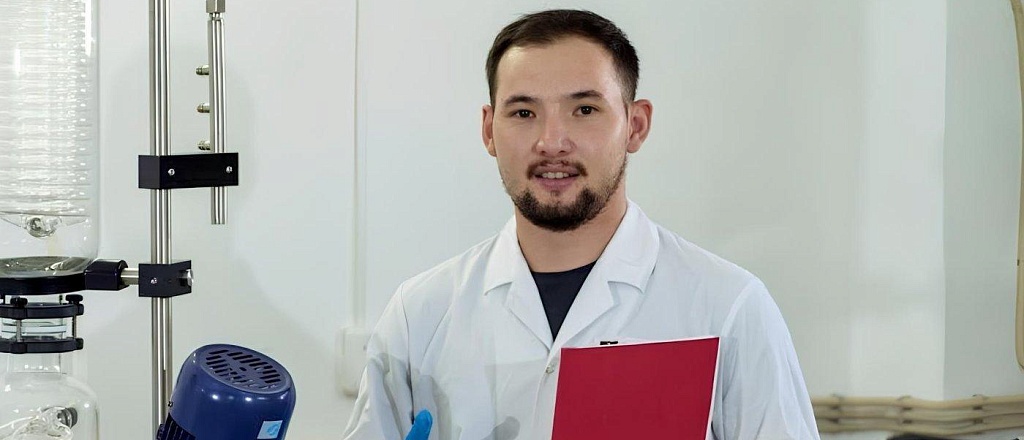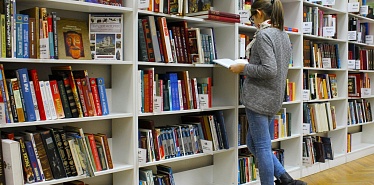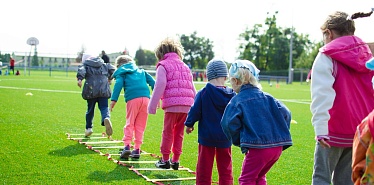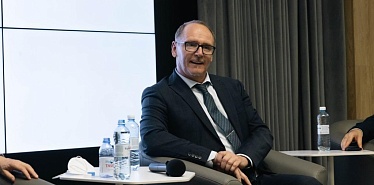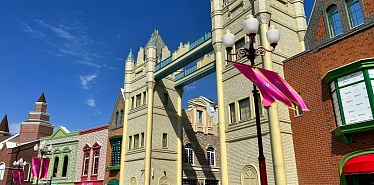We continue to tell you how young scientists in Central Asia conduct new research, create scientific projects and change people's lives. Today about the work of a biologist from Astana.
Madiyar Nurgaziev, 31, Astana, researcher at the National Laboratory Astana at Nazarbayev University
About me
I was born in Taraz. I studied at Kazakh-Turkish Lyceum in Astana. I completed my bachelor's degree at Dublin University of Technology and my master's degree at Karaganda State University. At the moment I am studying at the PhD program at the Eurasian National University, specializing in biology.
I work in a private institution National Laboratory Astana at Nazarbayev University.
I became interested in science in high school. We had wonderful biology teachers. They laid the foundation and interest to the subject, with which I later connected my life.
About my work
I am a researcher in the microbiome laboratory. Our activity is to analyze the human microbiome, especially the gut and oral cavity, as well as soil and water.
The microbiome is the community of microorganisms on the surfaces of our body. We analyze their composition through DNA isolation and further sequencing to determine the taxonomic composition of bacteria. Our goal is to determine the species diversity of microorganisms. There is such a concept: pathogenic microorganisms. If they predominate in the microbiome, different diseases can occur.
We are also studying how probiotics, prebiotics, symbiotics affect the gut microbiome.
About research
I'm working on a PhD on the relationship between the gut microbiome and rheumatoid arthritis.
Rheumatoid arthritis is a common chronic autoimmune disease that causes joint damage and deformity associated with increased risk of disability and shortened life expectancy.
The central theme of my thesis work is that microbial dysbiosis is a critical determinant of RA pathogenesis, and the interaction between human factors and the microbiome contributes to disease risk and disease activity. My aim is to investigate the complex relationship in relation to RA pathogenesis and disease activity in a Kazakhstan population.
My research could potentially improve the methods of diagnosis and follow-up of patients with rheumatoid arthritis in Kazakhstan and allow for a better understanding of the disease.
We are also launching specialized nutritional food products called Hormesis. They are designed for people involved in sports and are based on extracts of endemic plants growing in Kazakhstan. The active components in these extracts allow athletes to improve performance during physical exertion, reduce oxidative stress and increase the body's adaptive potential.
Our production plant is located 30 kilometers from Astana. We plan to start production in July this year and sell the products in the EAEU countries, the Middle East and China.
About science in Kazakhstan
Every year the country's R&D budget increases. At the beginning of my career in 2017, funding was limited and there were no grants for young scientists. Therefore, it was difficult for young scientists to compete with established experienced professors.
Now the Council of Young Scientists operates under the Ministry of Science and Higher Education and the Academy of Sciences under the President of the Republic of Kazakhstan. It helps young specialists to develop, defends their rights. All this helps young people to do science. Although the sums in grants from the state are not so large, they give good experience of research work.
Kazakhstan's science lacks cohesion. The country has a system in which research centers and organizations exist each in a separate vacuum. There is no full-fledged collaboration. Competition can sometimes arise despite the fact that people are trying to achieve the same goal. There is a claim that without competition there is no breakthrough and no progress. But I think it should not be within one state, but with foreign countries.
It would be right to create a separate agency for science to concentrate everything into one cluster under a single leadership. This will give a significant impetus to the development of the sphere.
Tips for young scientists
Participate in research projects during your studies. This way you will gain practical experience in laboratory work, learn how to write scientific articles and understand the inner workings of scientific activity.
Find an experienced supervisor who can support and guide you on your research journey.
Remember: failure is inevitable in scientific work. It is important to learn lessons and move forward.
I would like to quote the great scientist Albert Einstein: “Logic can take you from point A to point B, and imagination can take you anywhere”. In science, it is not enough to memorize textbooks. Only imagination and dreams will lead you to a scientific breakthrough.








